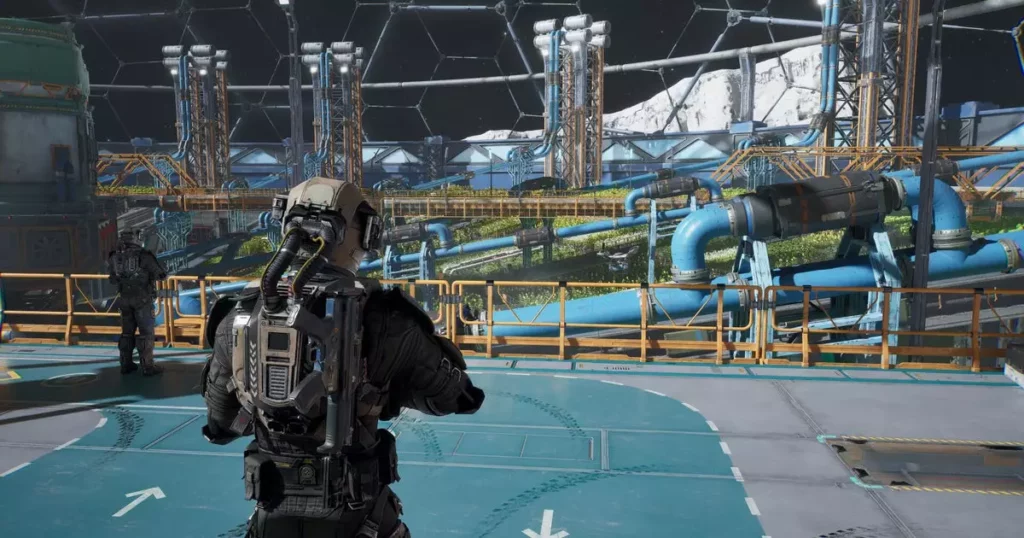In the ever-evolving landscape of video game adaptations, “The Expanse: Osiris Reborn,” developed by Owlcat Games, emerges as a project that elicits both excitement and skepticism. The enticing premise of immersing players in the compelling lore of this beloved sci-fi universe has the potential to captivate both new and seasoned fans. However, the specter of past adaptations looms large, cautioning us against the trap of mediocrity that has ensnared many franchises before. It is crucial that this game transcends the limitations often set by its predecessors.
The risk of diluting rich narratives by introducing irrelevant characters or subplots is all too familiar. While the notion of expansion is enticing, many adaptations have fallen prey to explorations that are poorly aligned with source material, leaving audiences feeling unsatisfied. The gaming industry is rife with examples—think of mediocre titles that barely skim the surface of complexities inherent in their source narratives. The necessity for “Osiris Reborn” to avoid these pitfalls cannot be overstated, or else it risks becoming a lackluster entry in a franchise that deserves better.
Pacing with Purpose: The Balancing Act
This adaptation is not merely a game, but rather a vehicle through which players may critically engage with the foundational themes of “The Expanse.” The setting of Eros Station has been strategically chosen, serving as a pivotal backdrop layered with ethical dilemmas and societal questions. Players are to confront the consequences of Captain James Holden’s controversial decisions, allowing for a profound exploration of morality within a fragmented universe. Yet the challenge remains—how do you balance these personal and profound story arcs with the expectations of established narratives that resonate deeply with fans?
The challenge here is formidable. A strong narrative thread that honors the series’ complexities while allowing for personal agency is essential for maintaining player investment. Development teams must remain vigilant, ensuring that players do not feel like mere spectators but rather active participants in a rich tapestry of storytelling.
Freedom or Chaos? The RPG Customization Dilemma
One of the more striking departures in “Osiris Reborn” is the absence of traditional RPG classes. On the surface, this change offers exhilarating possibilities for customization and dynamic character builds that could redefine player experiences. This shift could signal a welcome break from the constraining tropes of typical RPG frameworks. However, this newfound freedom carries complex challenges with it. How will Owlcat address issues of balance, particularly in multiplayer settings?
Without classes, players may navigate endlessly through an open-ended system designed for creativity, but it raises the question of coherence. Lack of defined roles could inadvertently lead to chaotic gameplay, where meaningful interactions among party members diminish. If the designers do not implement a robust system that encourages synergy and strategy among diverse character builds, it could detract from the collaborative essence fundamental to RPGs.
Realism vs. Gaming: Practical Gadgets and Space Combat Shortcomings
As a nod to the hard sci-fi nature of “The Expanse,” the introduction of practical gadgets, such as a smoke-penetrating visor, shows Owlcat’s commitment to realism. However, it’s worth noting that players crave not only realism but also a sense of thrill and adventure that often comes from engaging gameplay mechanics. The decision to omit ship-to-ship combat is particularly disheartening, especially in a franchise where space battles play a crucial role in its narrative. The absence of tactical maneuvers and space engagements is a missed opportunity that could undermine the excitement players expect from a universe teeming with conflict.
The allure of customizable ships remains, but without engaging combat mechanics, what does it matter if players can change their ship’s aesthetics? It is the strategic maneuvers and adrenaline rush of space battles that capture imaginations and immerse players in epic narratives. Without this vital component, “The Expanse: Osiris Reborn” risks being sidelined as an experience overly focused on narrative without sufficient engagement in the grand scale of space warfare.
Cautious Optimism Amidst Frustration
Owlcat’s prior successes in the realm of party-based RPGs offer a glimmer of hope for what “Osiris Reborn” may become. Yet, every revelation surrounding this project invokes a mixture of hope and wariness. Supported by compelling source material, the developers have a unique opportunity to craft a game that could resonate deeply with players, but this is a precarious path.
As the gaming community watches closely, the unfolding of “The Expanse: Osiris Reborn” remains a pivotal point in a franchise that has much to prove. The balance of maintaining fidelity to the beloved narrative while simultaneously innovating can create an experience that is either groundbreaking or disappointingly conventional. The stakes could not be higher, and all eyes are now fixed on Owlcat Games as they take this monumental leap into the unknown.









Leave a Reply